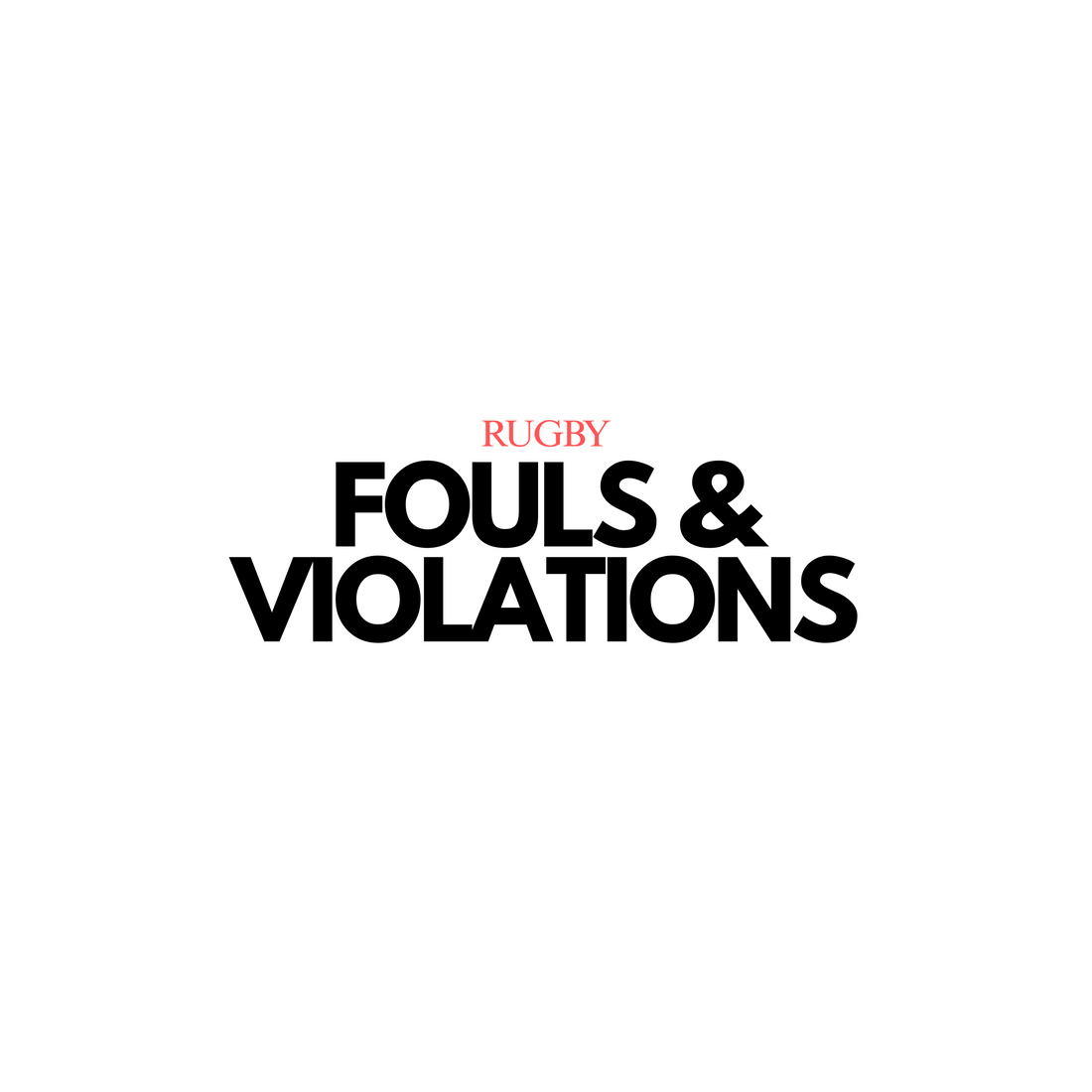
Fouls and Violations: What constitutes a foul or violation in rugby
Share
In rugby, fouls and violations are actions that go against the rules of the game, leading to penalties or other consequences. These fouls generally result in a penalty for the opposing team, and certain violations can also lead to free kicks, scrums, or even yellow or red cards.
________________________________________________________________________________________________
Here are some of the main fouls and violations in rugby:
1. Offside
A player is offside if they are ahead of the ball when it is passed or kicked by a teammate.
Penalty: The opposing team is awarded a penalty, and the offside player may be asked to return to an onside position.
2. Knock-On
A knock-on occurs when a player accidentally loses possession of the ball, and it goes forward from their hands or body.
Penalty: The opposing team is awarded a scrum at the location of the knock-on.
3. Forward Pass
A forward pass happens when the ball is thrown or passed forward (toward the opposition’s try line).
Penalty: The opposing team is awarded a scrum at the location of the forward pass.
4. High Tackle
A high tackle involves tackling an opponent above the shoulders, which is considered dangerous and illegal.
Penalty: The offending player can be penalized, and a yellow or red card may be issued depending on the severity of the tackle.
5. Dangerous Play
Actions such as lifting a player during a tackle or a tip tackle (where the player is tipped upside down and thrown to the ground) are considered dangerous and are strictly penalized.
Penalty: The offending team is awarded a penalty, and the player may be yellow or red-carded.
6. Foul Play (Including Violent Conduct)
Acts like punching, kicking, or elbowing an opponent intentionally are considered foul play.
Penalty: The team is penalized, and the player may receive a yellow or red card, depending on the severity of the incident.
7. Collapsing the Scrum
Collapsing a scrum intentionally (for example, by pulling it down or causing it to collapse) is illegal. It’s especially dangerous for the players involved.
Penalty: The opposing team is awarded a free kick or scrum, and the offending player may be penalized.
8. Not Releasing the Ball (After a Tackle)
After a tackle, the player must release the ball immediately to allow both teams to contest possession. Holding onto the ball after a tackle is a violation.
Penalty: The opposing team is awarded a penalty at the tackle location.
9. Not Rolling Away (After a Tackle)
When a player is tackled, they must roll away from the tackle area to allow the ball to be played. If they don’t, they are infringing.
Penalty: The team in possession of the ball is awarded a penalty.
10. Binding and Illegal Entry in Rucks or Mauls
Players must bind correctly (holding onto teammates) during rucks or mauls. Entering from the side (off the feet) or not binding is illegal.
Penalty: The offending team is penalized, and the other team may be awarded a scrum or free kick.
11. Obstruction
Obstruction occurs when a player deliberately blocks an opponent from tackling or contesting for the ball, without the ball being passed.
Penalty: The offending team is penalized, and the other team is awarded a scrum or free kick.
12. Closing the Gap in a Lineout
Players in a lineout must stay on their side of the line until the ball is thrown in. If they step into the gap illegally or early, it is a violation.
Penalty: The opposing team is awarded a scrum or free kick.
13. Retaliation (Violent Reactions)
Any form of retaliation, such as kicking, striking, or violent actions after a tackle or play, is a violation.
Penalty: A yellow or red card may be issued, and the opposing team may be awarded a penalty.
14. Player in the Air During Lineout
In a lineout, players must not lift their teammates higher than necessary or interfere with the lifting player. Dangerous or unfair lifting is penalized.
Penalty: The offending team is penalized, and the opposing team is awarded a free kick or scrum.
15. Playing the Ball on the Ground
In open play, players are not allowed to play the ball on the ground (except in rucks, where players can contest possession using their feet).
Penalty: The team is penalized, and the opposition is awarded a scrum or free kick.
________________________________________________________________________________________________
Card System:
Yellow Card: A temporary suspension for 10 minutes, usually for foul play or repeated infringements.
Red Card: A permanent dismissal from the game for serious offenses like violent conduct or dangerous tackles.
Fouls and violations are crucial for maintaining the safety, fairness, and flow of the game, and penalties are often awarded to give the non-offending team a chance to gain an advantage.
